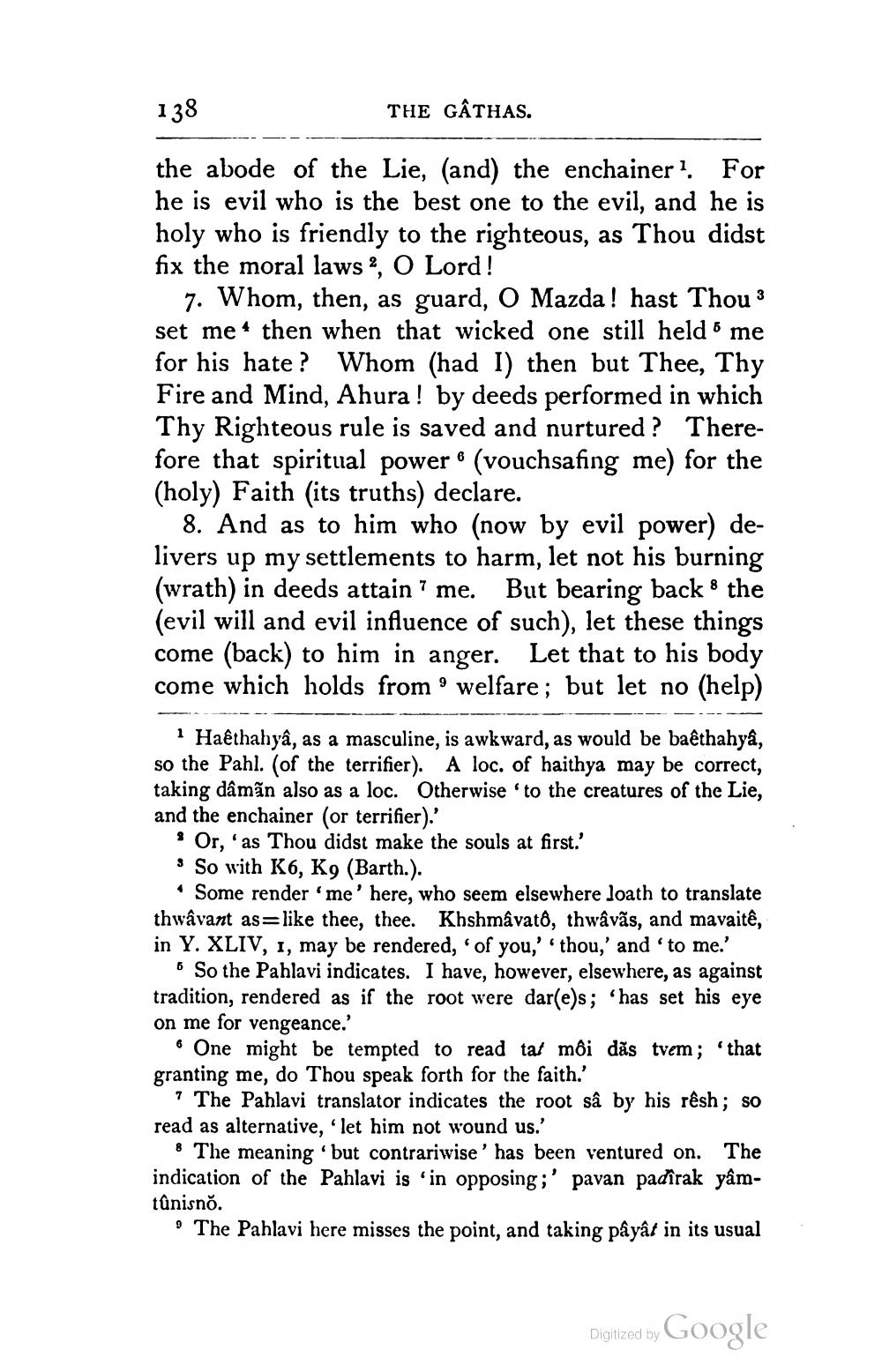________________
138
THE GÂTHAS.
the abode of the Lie, (and) the enchainer? For he is evil who is the best one to the evil, and he is holy who is friendly to the righteous, as Thou didst fix the moral laws ?, O Lord !
7. Whom, then, as guard, O Mazda ! hast Thou 3 set me 4 then when that wicked one still held 6 me for his hate? Whom (had I) then but Thee, Thy Fire and Mind, Ahura ! by deeds performed in which Thy Righteous rule is saved and nurtured? Therefore that spiritual power ® (vouchsafing me) for the (holy) Faith (its truths) declare.
8. And as to him who (now by evil power) delivers up my settlements to harm, let not his burning (wrath) in deeds attain ? me. But bearing back the (evil will and evil influence of such), let these things come (back) to him in anger. Let that to his body come which holds from welfare; but let no (help)
Haethahyâ, as a masculine, is awkward, as would be baêthahya, so the Pahl. (of the terrifier). A loc. of haithya may be correct, taking dâmãn also as a loc. Otherwise 'to the creatures of the Lie, and the enchainer (or terrifier).'
* Or, 'as Thou didst make the souls at first.' * So with K6, K9 (Barth.).
• Some render 'me' here, who seem elsewhere loath to translate thwâvant as=like thee, thee. Khshmâvato, thwâvãs, and mavaitê, in Y. XLIV, 1, may be rendered, of you,' thou,' and 'to me.'
• So the Pahlavi indicates. I have, however, elsewhere, as against tradition, rendered as if the root were dar(e)s; 'has set his eye on me for vengeance.
One might be tempted to read tał môi dãs tvem; that granting me, do Thou speak forth for the faith.'
7 The Pahlavi translator indicates the root sâ by his rêsh; so read as alternative, let him not wound us.'
8 The meaning but contrariwise' has been ventured on. The indication of the Pahlavi is 'in opposing;' pavan padîrak yâmtûnisno.
9 The Pahlavi here misses the point, and taking pâyât in its usual
Digitized by
Digitized by Google




